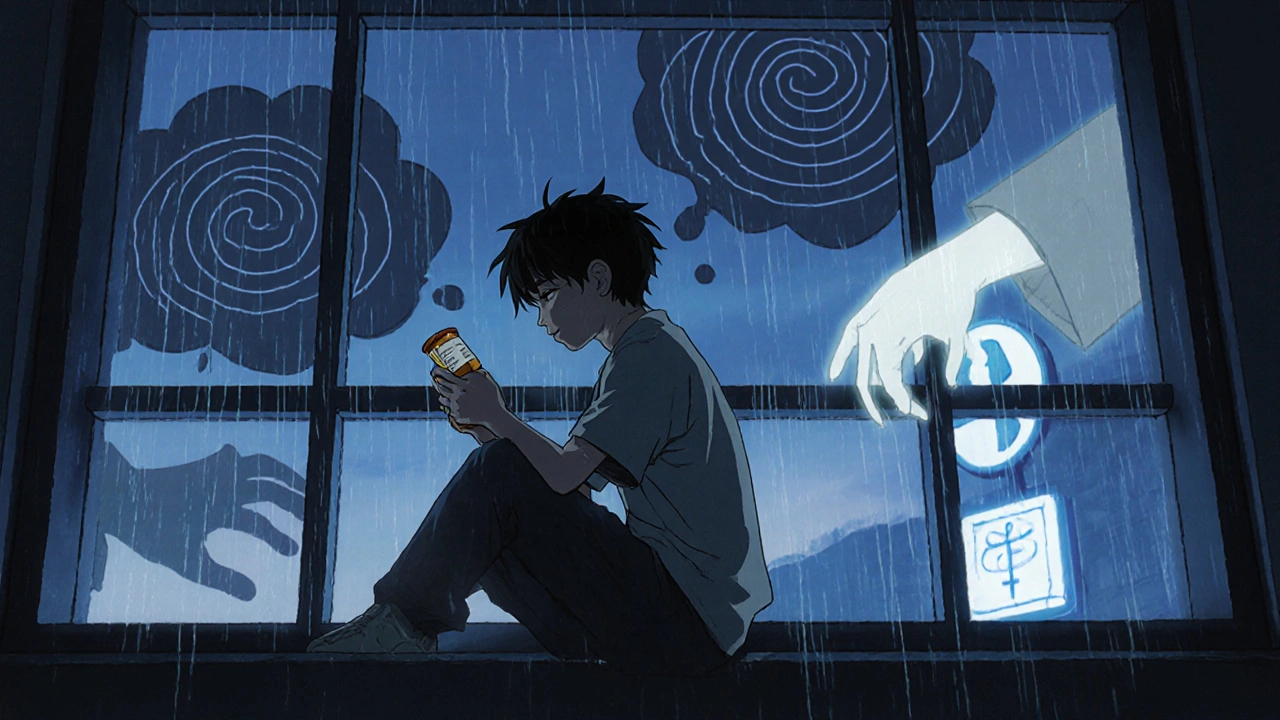Antidepressants for Adolescents: What Works, What to Watch For
When antidepressants for adolescents, medications prescribed to treat depression in teenagers, often as part of a broader mental health plan. Also known as pediatric antidepressants, these drugs are not one-size-fits-all — and their use in teens requires careful monitoring because their brains are still developing. Unlike adults, adolescents don’t always respond the same way to the same medications. Some show improvement quickly; others experience increased anxiety, agitation, or even suicidal thoughts in the first few weeks — a reason why the FDA added a black box warning to many SSRIs used in this age group.
Commonly prescribed SSRIs, selective serotonin reuptake inhibitors, the most frequently used class of antidepressants for teens. Also known as serotonin-enhancing drugs, they include fluoxetine (Prozac), sertraline (Zoloft), and escitalopram (Lexapro). Fluoxetine is the only one approved by the FDA specifically for depression in children 8 and older, and it’s often the first choice because of its strong safety data in teens. But even with approval, it’s not magic — it takes 4 to 8 weeks to work, and it’s most effective when paired with therapy like CBT. Other options like venlafaxine or bupropion are sometimes used off-label, but evidence is thinner, and risks can be higher.
Teen depression treatment, a multi-layered approach that includes therapy, lifestyle changes, and sometimes medication, tailored to the individual’s symptoms and environment. Also known as adolescent mental health care, it’s not just about popping a pill — it’s about understanding school stress, social pressures, family dynamics, and sleep patterns. Many teens respond better to talk therapy alone, especially if their depression is mild to moderate. But when symptoms are severe — like persistent sadness, dropping grades, self-harm, or withdrawal — medication can be life-saving. That’s why doctors don’t just prescribe and walk away. They check in weekly at first, monitor weight, sleep, mood swings, and watch for any signs of worsening behavior.
Parents often worry about side effects: weight gain, nausea, insomnia, or sexual side effects. Some teens quit because they feel "numb" or like they’re not themselves. Others feel better quickly and want to stop — but stopping too soon can trigger relapse. That’s why consistency matters. And why you need to talk to the doctor before making any changes.
There’s also a growing conversation about alternatives — from exercise and sunlight exposure to omega-3s and mindfulness practices. While these won’t replace medication in severe cases, they can support it. The posts below dig into real-world cases, comparisons of specific drugs, how side effects show up in teens, and what happens when antidepressants don’t work. You’ll find what actually works in practice, not just what’s on the label. Whether you’re a parent, teen, or caregiver, this collection gives you the facts you need to ask better questions and make smarter choices.
Antidepressants for Teens: Understanding the Black Box Warning and What Parents Need to Know
Antidepressants for teens carry a black box warning for increased suicidal thoughts, but research shows avoiding treatment may be more dangerous. Learn what the warning really means, how to monitor safely, and why therapy combined with medication often works best.
